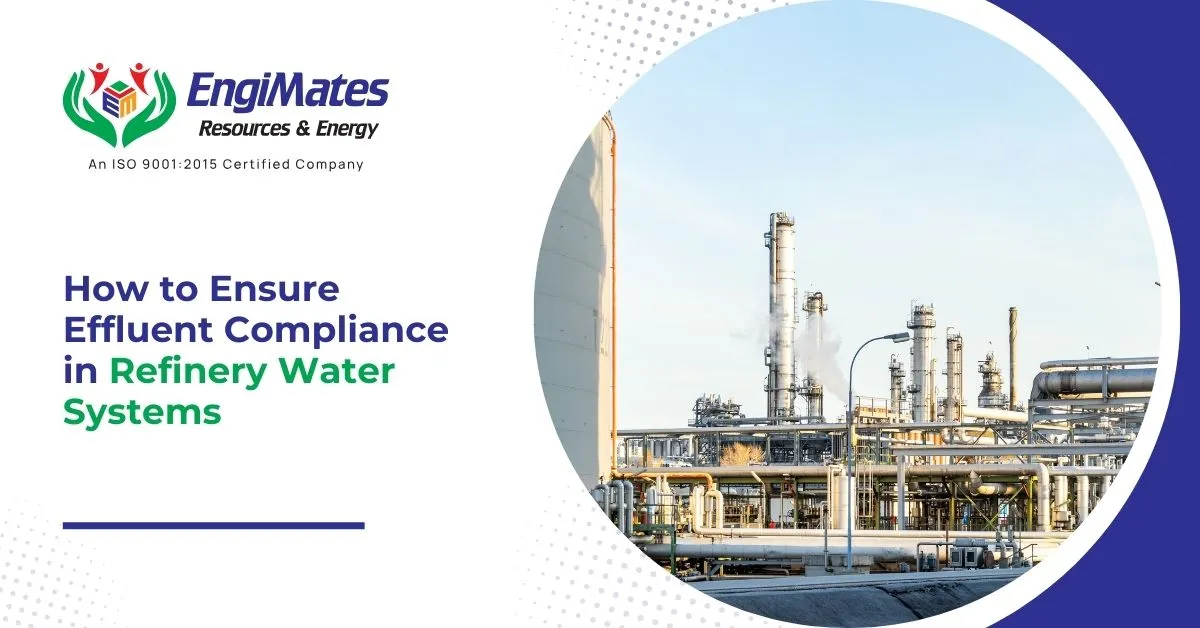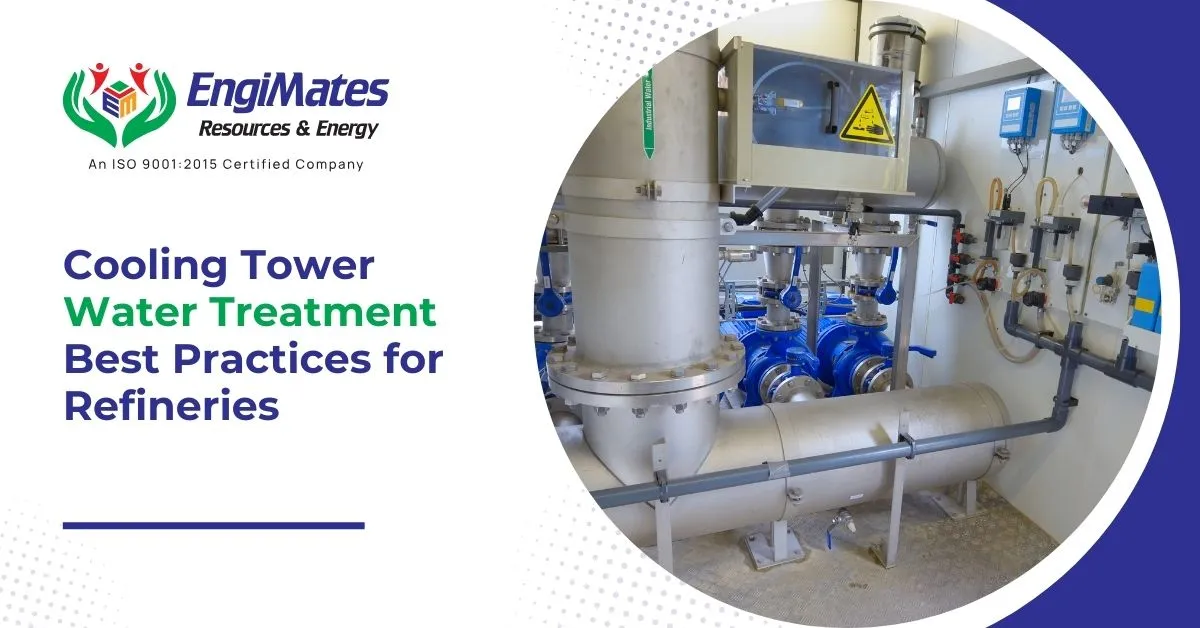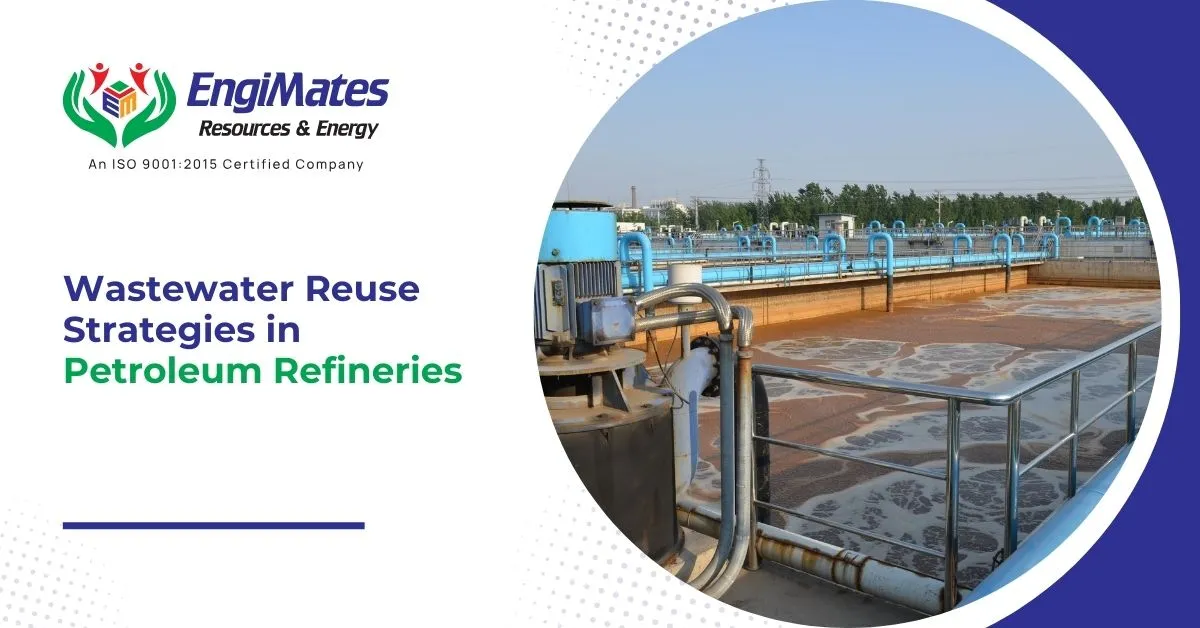Cooling towers are vital in refinery operations, ensuring efficient heat rejection, stable process performance, and…

Refinery water systems generate large volumes of wastewater that contain hydrocarbons, heavy metals, suspended solids, and other contaminants. If not treated properly, these effluents can harm the environment and lead to severe regulatory penalties. Ensuring effluent compliance in refinery water systems is therefore a critical responsibility for operators who aim to achieve safe, sustainable, and legally compliant operations.
Table of Contents
Understanding Effluent Compliance in Refineries
Effluent compliance refers to meeting environmental discharge standards set by regulatory bodies for wastewater released from refineries. These standards typically focus on parameters like oil and grease content, biochemical oxygen demand (BOD), chemical oxygen demand (COD), pH, suspended solids, and heavy metal concentrations.
Refineries must implement robust water treatment strategies to ensure that effluents discharged into natural water bodies or municipal treatment facilities meet permissible limits.
Key Steps to Ensure Effluent Compliance
Effluent compliance is vital for oil and gas refineries to meet environmental regulations and avoid costly penalties. By implementing the right treatment processes and monitoring systems, refineries can ensure sustainable operations and protect surrounding ecosystems.
Source Segregation of Wastewater
Different refinery processes generate distinct wastewater streams such as oily water, process condensate, and cooling tower blowdown. Segregating wastewater at the source improves treatment efficiency and reduces the load on effluent treatment plants (ETPs).
Advanced Effluent Treatment Plants (ETPs)
Installing and upgrading refinery effluent treatment plants with modern technologies such as dissolved air flotation (DAF), membrane bioreactors (MBR), and tertiary treatment ensures removal of oil, suspended solids, and dissolved contaminants to meet discharge standards.
Real-Time Monitoring and Automation
Smart sensors and online monitoring systems enable continuous tracking of effluent quality parameters. Automated control systems allow operators to make adjustments in real-time, ensuring compliance without delays.
Regular Maintenance and Audits
Routine inspection, cleaning, and calibration of equipment such as pumps, clarifiers, and membranes help maintain treatment efficiency. Regular compliance audits also ensure adherence to national and international wastewater standards.
Looking to ensure reliable effluent compliance in your refinery? Contact us for tailored water treatment and compliance solutions.
Sludge Handling and Disposal
Improper sludge management can cause secondary pollution. Using safe sludge dewatering, drying, and disposal techniques ensures overall environmental compliance.
Training and Awareness
Personnel training on water treatment, regulatory compliance, and safety protocols is essential. Skilled operators can detect issues early and ensure effective plant performance.
Benefits of Ensuring Effluent Compliance
- Environmental Protection: Prevents contamination of natural water bodies.
- Regulatory Safety: Avoids penalties and shutdowns due to non-compliance.
- Operational Efficiency: Enhances performance of refinery water systems.
- Reputation Management: Builds stakeholder trust and supports sustainability goals.
EngiMates’ Role in Refinery Effluent Compliance
EngiMates provides engineering solutions for refinery water treatment systems, including process simulation, effluent treatment design, and advanced monitoring systems. With expertise in dynamic simulations, flare system assessments, and asset management, EngiMates ensures that water treatment projects are aligned with global environmental standards.
Frequently Asked Questions
What is effluent compliance in refinery water systems?
Effluent compliance means ensuring that wastewater discharged from refinery operations meets environmental standards for parameters like oil and grease, COD, BOD, pH, and heavy metals.
Why is effluent compliance important in oil refineries?
Effluent compliance prevents environmental pollution, protects water resources, avoids costly penalties, and ensures refinery operations meet local and international regulations.
What technologies are used to treat refinery effluents?
Refineries use technologies such as dissolved air flotation (DAF), membrane bioreactors (MBR), reverse osmosis, biological treatment, and tertiary filtration to meet effluent standards.
How can real-time monitoring improve effluent compliance?
Smart sensors and automation systems provide continuous tracking of effluent parameters, enabling quick adjustments and consistent regulatory compliance.
How does EngiMates support effluent compliance in refineries?
EngiMates provides end-to-end solutions including process simulation, effluent treatment design, monitoring systems, and compliance audits tailored for oil and gas refineries.
Conclusion
Effluent compliance in refinery water systems is not just about meeting legal requirements—it is about safeguarding the environment, protecting human health, and ensuring sustainable operations. By integrating advanced treatment technologies, automation, and expert services like those offered by EngiMates, refineries can achieve reliable compliance and operational excellence.



